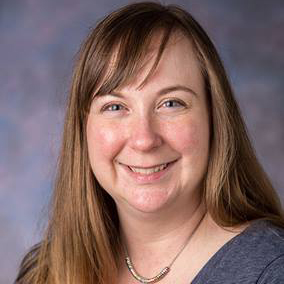Doctor of Nursing Practice: Psychiatric and Mental Health Nurse Practitioner
Champion Equity in Mental Health
Step into a leadership role at the highest level of nursing with Antioch University’s Doctor of Nursing Practice: Psychiatric and Mental Health Nurse Practitioner (DNP-PMHNP) program. Designed for experienced nurses ready to transform healthcare systems and mental health outcomes, this flexible, online DNP combines advanced clinical training with strategic leadership development.
Whether you aim to lead at the bedside, in executive roles, or as a policy change-maker, the DNP-PMHNP will position you to create systemic impact while staying grounded in human-centered care.
Program Overview
Antioch’s DNP in Psychiatric and Mental Health Nurse Practice prepares expert advanced practice nurses to lead transformative care across clinical and organizational settings. This doctoral-level program equips you to deliver holistic, evidence-based psychiatric care while advancing mental health systems that are inclusive, accessible, and effective.
You’ll be prepared to:
- Conduct psychiatric evaluations and manage care for individuals across the lifespan
- Lead change initiatives in mental health delivery and interdisciplinary collaboration
- Design and evaluate programs that improve access and outcomes for underserved populations
- Influence healthcare policy through evidence-based advocacy and systems leadership
- Sit for national certification through the American Nurses Credentialing Center (ANCC) or the American Academy of Nurse Practitioners Credentialing Board (AANP)
The curriculum emphasizes:
- Advanced psychiatric-mental health practice
- Organizational and systems leadership
- Health policy and population health
- Evidence-based care innovation
- Economic and clinical outcome evaluation
Along the way, students may earn a Master of Science in Nursing (MSN) or Post-Graduate Certificate, enabling them to pursue certification and begin practice as an FNP while continuing toward their doctoral degree. Students can continue into the DNP immediately or return within five years to complete their scholarly doctoral project.
The Doctor of Nursing Practice program at Antioch University is pursuing initial accreditation by the Commission on Collegiate Nursing Education (http://www.ccneaccreditation.org). Applying for accreditation does not guarantee that accreditation will be granted.
Licensure
This program is designed to lead to state licensure.

Elevating Your Nursing Career with a Proven Legacy
As Proud Co-Founder of the Coalition for the Common Good, Antioch University offers a program with a rich tradition of excellence, honed over 45 years by dedicated nursing professionals. Formerly anchored at Otterbein University, this initiative now thrives at Antioch, continuing a legacy of quality and practical expertise. Benefit from our flexible, student-centered graduate model, designed to empower you with clinical confidence and personalized support, ensuring you're prepared to excel in your nursing practice.
Degree Requirements
3 years
Psychiatric-Mental Health Nurse Practitioners (PMHNPs) are in high demand as mental health becomes a growing national priority. According to the U.S. Bureau of Labor Statistics, nurse practitioner employment is projected to grow 46% from 2023 to 2033—a rate far above average. This growth is fueled by rising mental health needs, provider shortages, and a push for more accessible care.
PMHNPs play a critical role in expanding access to psychiatric services across a wide range of care settings, including:
- Private practice
- Substance use disorder treatment centers
- Community mental health clinics
- Correctional and extended care facilities
- Integrated behavioral health and primary care settings
- Inpatient and outpatient psychiatric units
- Consultation-liaison roles in hospitals
With competitive salaries and growing autonomy, the PMHNP role offers a meaningful, high-impact career path for nurses ready to lead the future of mental healthcare.
Program Details
Antioch University’s Department of Nursing is committed to quality nursing education that uses a holistic caring framework to promote excellence and safe healthcare. We encourage the personal and professional development of faculty, staff, and students, as well as an appreciation for diverse perspectives and humane values. Our goal is to prepare lifelong learners committed to the profession and the community, and to meeting society’s changing healthcare needs.
- Lifelong learning
- Holistic care
- Diversity, inclusion, access
- Purposeful clinical experiences
- Integrity
- Develop competent nursing professionals who can integrate and synthesize knowledge from relevant fields of study to provide safe, high-quality, patient-centered care to diverse individuals, families, groups, and populations.
- Prepare graduate nurses and healthcare professionals for intentional collaboration with other health professionals and healthcare stakeholders to promote optimal, equitable health outcomes that foster social justice in the health promotion and disease management for marginalized populations.
- Equip graduate nurses and healthcare professionals to lead in complex health systems, creating interprofessional partnerships while reflecting on self-bias to pursue personal and professional development while advocating for all humanity.
- Cultivate ethical health professionals that use a variety of informatic technologies to generate, analyze, and synthesize knowledge to improve health and transform healthcare.
Student Learning Outcomes
- Integrate nursing science with knowledge from the natural and social sciences as a basis for the highest level of nursing practice for diverse populations. (E1)
- Provide organizational and systems leadership in advanced nursing practice roles to improve marginalized patient and healthcare outcomes, through advocacy and implementation of management and quality improvement strategies. (E5)
- Provide leadership for evidence-based practice, through translation of research for practice, dissemination of research findings, application of research findings for all populations, implementation of quality improvement methodologies, evaluation of practice outcomes, and participation in collaborative research. (E4)
- Demonstrate proficiency in the utilization and evaluation of information systems/technology resources for knowledge application, management of individual and aggregate data, and quality improvement for all marginalized populations. (E8)
- Provide leadership in the analysis, development, implementation, and evaluation of healthcare policies, congruent with advocacy for social justice, equity, and ethics in global healthcare. (E7, E10)
- Employ effective communication, collaboration, and leadership skills with individuals, groups, and teams to facilitate problem solving and team functioning for equitable healthcare and healthcare delivery to marginalized populations. (E6)
- Analyze epidemiological, bio-statistical, environmental, and other appropriate diverse data for developing, implementing, and evaluating clinical prevention and population health interventions. (E2, E3)
- Demonstrate advanced levels of clinical judgment in designing, implementing, and evaluating equitable therapeutic interventions to improve patient and/or healthcare outcomes. (E2)
- Implement meaningful change in the areas of legal, ethical, economic, and professional functions of advanced nursing practice roles while advocating for all humanity. (E9, E10)
- Integrate caring behaviors and patterns, including cultural competence and attention to underserved regional and global individuals and groups, into advanced nursing practice roles. (E3)
Faculty Spotlights

Deana Batross, DNP, RN, FNP-BC, PMHNP-BC
Director

Diane White, PhD, RN
Dean

Regina Prusinski, DNP, CPNP-AC, FNP-BC
Chair
Accreditation Information
(For Applicants – CCNE Accreditation in Progress) All Graduate Nursing programs must complete the CCNE approval process AFTER students are enrolled. In order to have sufficient enrollment and data, programs are encouraged to seek accreditation within 1-2 years.
Not yet. Our graduate nursing program is currently in the process of seeking initial accreditation from the Commission on Collegiate Nursing Education (CCNE). This process includes a comprehensive self-study, peer review, and site visit. The accreditation decision will follow after that.
This means our program has:
- Applied for accreditation
- Submitted a self-study report
- Will be hosting a CCNE site visit
Programs are not considered accredited until the CCNE Board of Commissioners makes an official accreditation decision.
Yes. If the program is granted CCNE accreditation, accreditation can be retroactively applied to include students who were enrolled during the time of the site visit. This means your degree can be considered accredited depending on your enrollment date and the final accreditation outcome.
The timeline typically follows this sequence:
- Final decision by CCNE Board: Late Spring 2028 (April/May)
- Self-study submission: August 2027
- CCNE site visit: October 2027
We will share updates with enrolled and prospective students as we move through each phase.
Our program:
- Meets national curriculum standards for certification
- Our goal is to build a high-quality program that supports both licensure and career advancement.
- Is led by experienced faculty
- Has strong clinical partnerships
- Smaller program size offers more attention and support for student success
- Faculty are intentional with student engagement and interactive learning
- Is committed to full compliance with CCNE and the state Board of Nursing requirements
No, as long as:
- The program is approved by the state Board of Nursing
- You meet the requirements of the certifying body (e.g., ANCC, AANP)
You may sit for your certification exam. The national certification body verifies graduation from a CCNE-approved program to release certification.
We will:
- Designate a faculty contact for questions related to accreditation status
- Share updates via email and our program website
- Host Q&A sessions for prospective and current students
Program Director: Dr. Regina Prusinski
Email: [email protected]
How to Apply
Admission Criteria
- Graduate degree in nursing from an institution of higher education that is fully accredited by the appropriate regional accrediting agency, and from an ACEN- or CCNE-accredited graduate nursing program.
- A current, valid, and unrestricted license as a Registered Nurse in the U.S.. In addition, an applicant must not have had a previous revocation, denial, suspension, or restriction of their license from any state or country. Current unrestricted licensure as a Registered Nurse in the state where the clinical and immersion experiences, as well as the practice project, will be conducted.
- Minimum of one (1) year paid clinical work experience within the past three years as a Registered Nurse before the application deadline, documented on the submitted resume. Clinical work experience must include direct care in a public health, community, hospital, or ambulatory care setting that serves patients across the life span.
- Evidence of capacity for graduate study.
- A blended cumulative grade point average of 3.0 or higher on a 4.0 scale for all previous coursework on the submitted transcripts;
- A Science GPA of 3.0 or higher on a 4.0 scale comprising grades in anatomy, physiology, pathophysiology, microbiology, statistics, and chemistry courses.
- Completion of an undergraduate- or graduate-level statistics course with a grade of B or better.
- Positive professional recommendations.
Application Requirements
- Complete the online admissions application, including:
- Optional Personal Essay: Summarize your professional background; Describe past experiences and reflections that have influenced these goals; and discuss professional and career goals, and how these goals can be achieved in the Doctor of Nursing Practice program, as well as ideas for the final scholarly project. The essay should be carefully planned, written, and edited by the applicant.
- Professional resume. Also include leadership activities, scholastic awards, nursing organizational memberships, and community service, as applicable.
- Evidence of licensure and certification, if any. Include professional licensure numbers and the licensing state, and a copy of the certificate issued by your national board certification body. The Graduate School will verify licensure and certification, which will be added to the student's file.
- Submit official transcripts from all colleges or universities where you earned a degree or certificate (A cumulative GPA of 3.0 or higher is preferred). Email to [email protected] or mail to: Antioch University, Admissions Office, 900 Dayton Street, Yellow Springs, Ohio 45387
- Three letters of recommendation are required from people who are in a position to evaluate your professional (e.g., clinical supervisor, Peer (RN), other clinician, and academic (e.g., professor) work. The person making the recommendation may not be related to you.
- Interview with the Nursing Program faculty if needed. This interview will be conducted via Zoom (video conferencing).
- Students must submit documentation of meeting health requirements – including completion of the American Heart Association Basic Life Support (BLS) curriculum – prior to starting classes, and must submit documentation of keeping health requirements current throughout their course of study.
Optional: If you do not feel as if your academic transcript(s) reflect your current ability to be successful as a graduate student, please be sure to highlight a plan for being successful in this program.
All application materials submitted become part of an applicant’s file and cannot be returned.
Application Deadlines
| Semester | Application Deadlines |
|---|---|
| Spring | November 1 |
| Fall | July 1 |
| Please review the Academic Calendar for additional details. | |
If you have any questions during the process, please do not hesitate to contact us at [email protected]. Our faculty and staff are here to assist you throughout the application process.
Tuition
| Program | Cost |
|---|---|
| DNP (All Concentrations) | $765 per semester hour |
| MSN (All Concentrations) | $665 per semester hour |
| Certificates | Contact Admissions for Details |
| View the Cost of Attendance Components | |
Financial Aid
Many students finance their education through some form of financial aid. You may not be sure which federal, state, public, and private aid packages – such as loans, scholarships, and grants – are right for you. Our staff is here to help you so you can focus on what’s most important: beginning your academic program.
Antioch University is proud to partner with several schools and employers to offer scholarships and/or special educational benefits to employees, students, and alumni of select partner institutions. To learn more about these scholarships and to find out if you are eligible, talk with Admissions.

Start your Antioch Journey
Take your next step - talk to our admissions team to find the right program for you.
